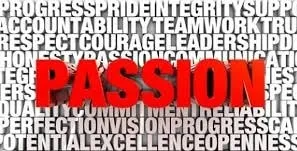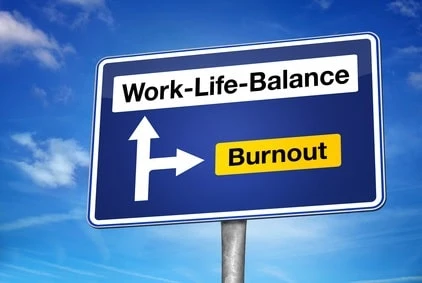Michael DeSafey | Executive Recruiter and HR Professional
Achieving Work-Life Balance: Strategies for Construction Project Managers
As a construction project manager, your job is challenging and demanding, with tight schedules, complex tasks, and high stakes. Achieving work-life balance in such a role can be a daunting task. However, it is essential for your well-being and overall job performance. In this blog post, we will explore effective strategies and tips for construction project managers to create a harmonious work-life balance, ensuring career success without sacrificing personal life.
1. Prioritize Time Management
Effective time management is crucial for construction project managers. Prioritize tasks, set clear objectives, and allocate time for each project component. Use tools and software, such as project management software and scheduling apps, to streamline your work and avoid overloading your schedule.
2. Delegate Responsibilities
Recognize that you can’t do it all alone. Delegate responsibilities to your team members and empower them to take ownership of specific tasks. Trust your team’s capabilities and provide support when needed. Delegation not only lightens your workload but also fosters team development.
3. Set Clear Boundaries
Establish clear boundaries between work and personal life. Define your working hours and stick to them as closely as possible. Communicate these boundaries to your team and clients to manage expectations regarding your availability.
4. Take Breaks and Vacations
Don’t neglect the importance of regular breaks and vacations. Taking time off allows you to recharge and rejuvenate. Plan vacations in advance and ensure there are colleagues or team members who can cover for you during your absence.
5. Utilize Technology Wisely
Leverage technology to enhance your work-life balance. Use mobile apps and cloud-based tools that allow you to monitor project progress remotely. This flexibility can help you stay connected with your projects while maintaining personal commitments.
6. Time for Family and Friends
Allocate dedicated time for family and friends. Schedule regular family dinners, outings, or social events to nurture personal relationships. Being present and engaged during these moments is essential for maintaining a healthy work-life balance.
7. Physical and Mental Health
Prioritize your physical and mental well-being. Regular exercise, a balanced diet, and sufficient sleep are essential for sustaining your energy levels and reducing stress. Consider mindfulness practices, such as meditation or yoga, to manage stress and promote mental clarity.
8. Develop a Support Network
Build a support network of friends, colleagues, and mentors who understand the demands of your role. Share your challenges and seek advice when needed. A supportive network can provide valuable insights and emotional support.
9. Set Realistic Expectations
Set realistic expectations for project timelines and outcomes. Avoid overcommitting or taking on more projects than you can manage effectively. Realistic expectations help prevent burnout and maintain work-life balance.
10. Learn to Say No
It’s essential to know your limits and learn to say no when necessary. Politely decline additional work or commitments that could jeopardize your work-life balance. Communicate your boundaries confidently.
11. Work Smart, Not Hard
Efficiency is key to maintaining work-life balance. Focus on working smart by streamlining processes, eliminating unnecessary tasks, and optimizing workflows. Look for opportunities to automate repetitive tasks.
12. Continuous Learning
Invest in your professional development and knowledge. Enhancing your skills and knowledge can lead to more efficient work processes and reduced stress. Attend workshops, seminars, and industry conferences to stay updated.
13. Set Personal Goals
In addition to professional goals, establish personal goals that align with your interests and values. Pursuing personal passions and hobbies outside of work can provide a sense of fulfillment and balance.
14. Communication Skills
Develop strong communication skills to manage expectations effectively. Clearly communicate project timelines, constraints, and potential delays to clients and stakeholders to prevent misunderstandings.
15. Flexibility and Adaptability
Recognize that construction projects can be unpredictable. Be flexible and adaptable in your approach to handle unexpected challenges. A flexible mindset allows you to navigate changes with ease.
16. Reflect and Adjust
Regularly assess your work-life balance and make adjustments as needed. Reflect on what is working and what can be improved. Seek feedback from trusted colleagues or mentors to gain different perspectives.
17. Seek Professional Help
If you find yourself consistently struggling to maintain work-life balance and experiencing high levels of stress, consider seeking professional help, such as counseling or coaching. A professional can provide guidance and strategies to cope with challenges.
Achieving Balance in the Construction Project Manager Role
Balancing the demands of a construction project manager role with personal life is achievable with the right strategies and mindset. Prioritizing time management, setting boundaries, and nurturing physical and mental health are essential steps in creating a harmonious work-life balance. Remember that achieving balance is an ongoing process that requires self-awareness, adaptability, and a commitment to personal well-being. By implementing these strategies, construction project managers can lead fulfilling careers while enjoying a satisfying personal life.
Webuild Staffing Agency is a leading executive search and staffing agency dedicated to the construction, engineering and environmental industries. To learn more please visit: www.webuildstaffing.com



